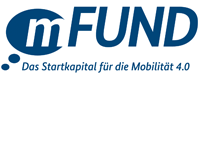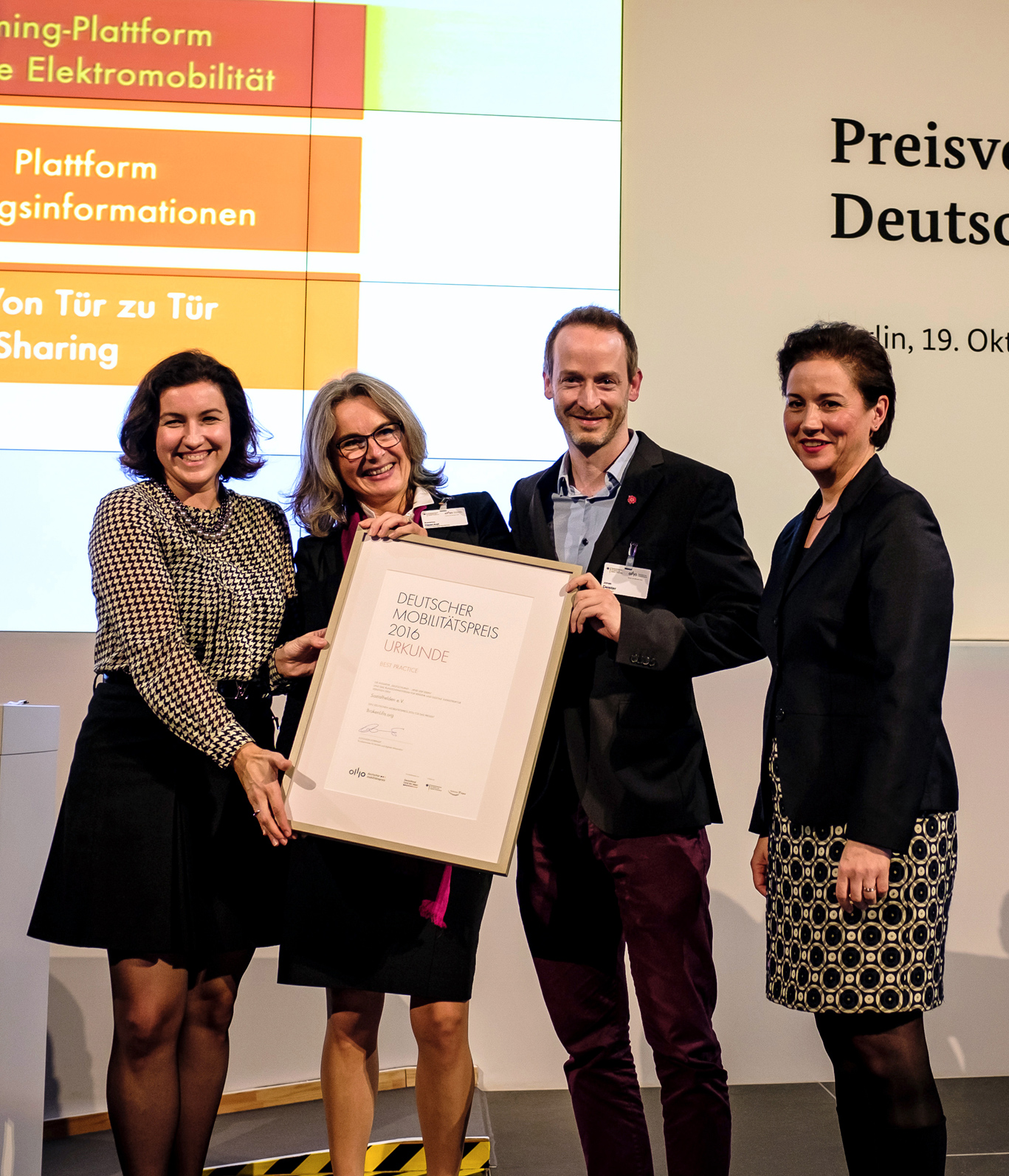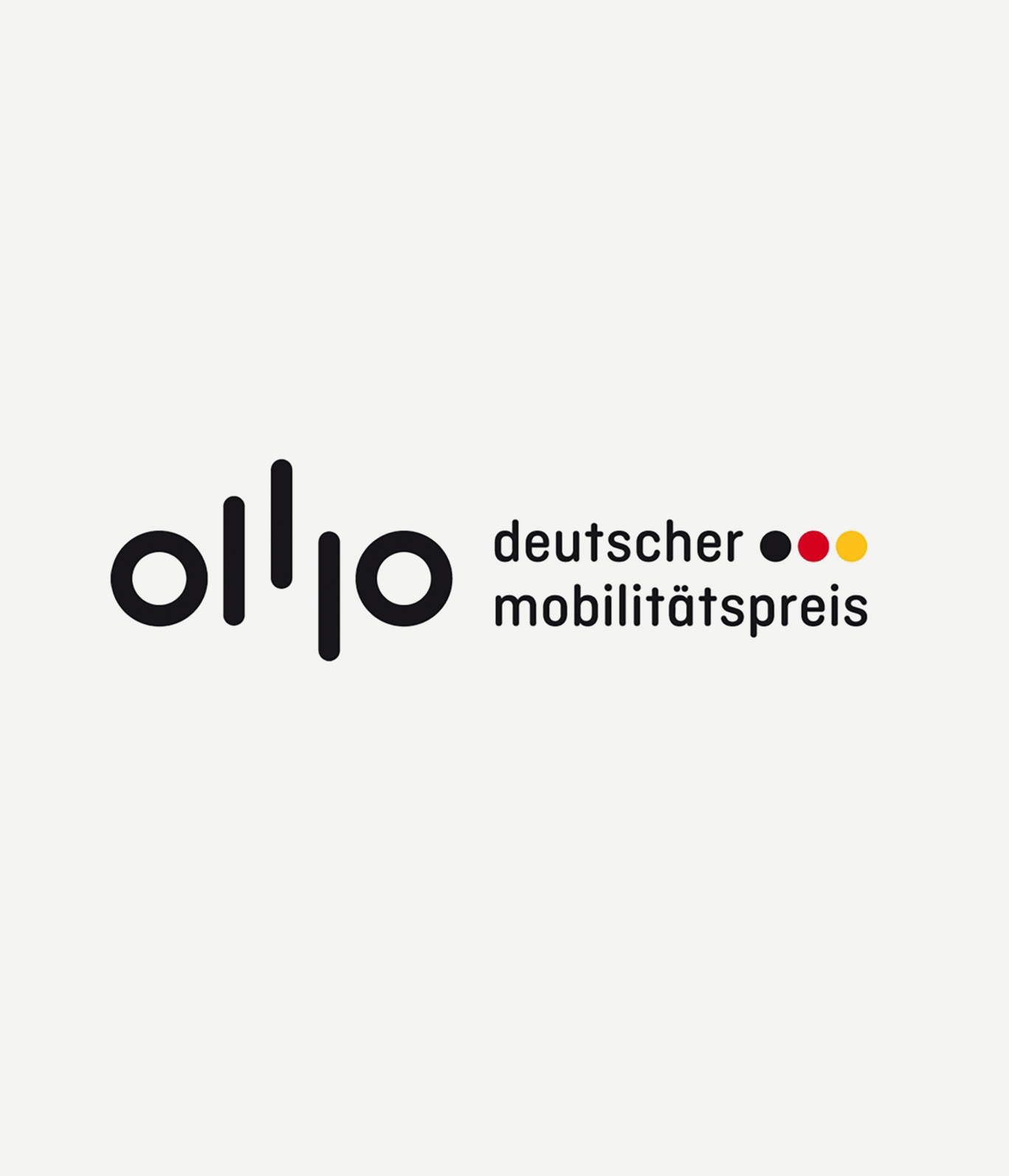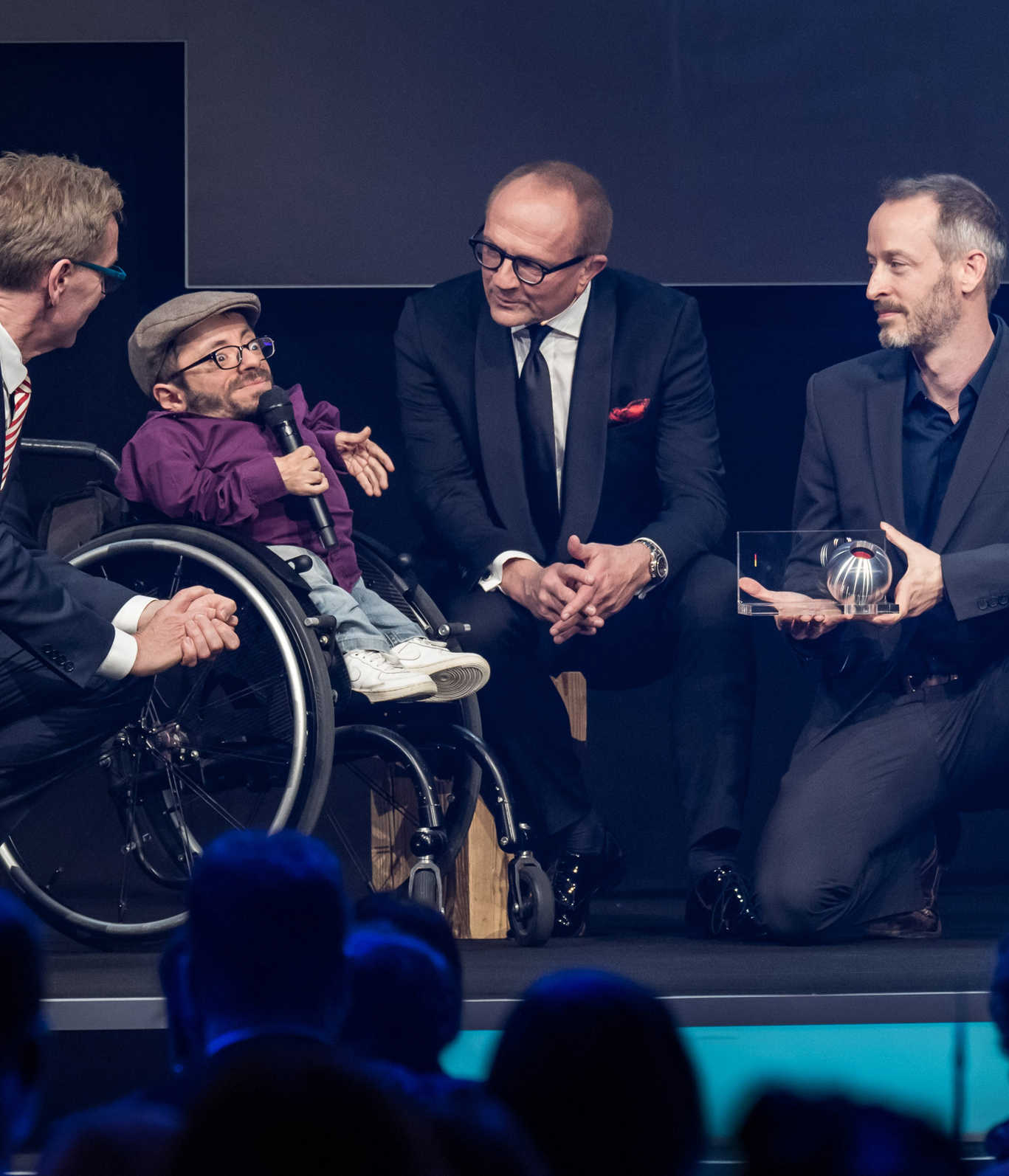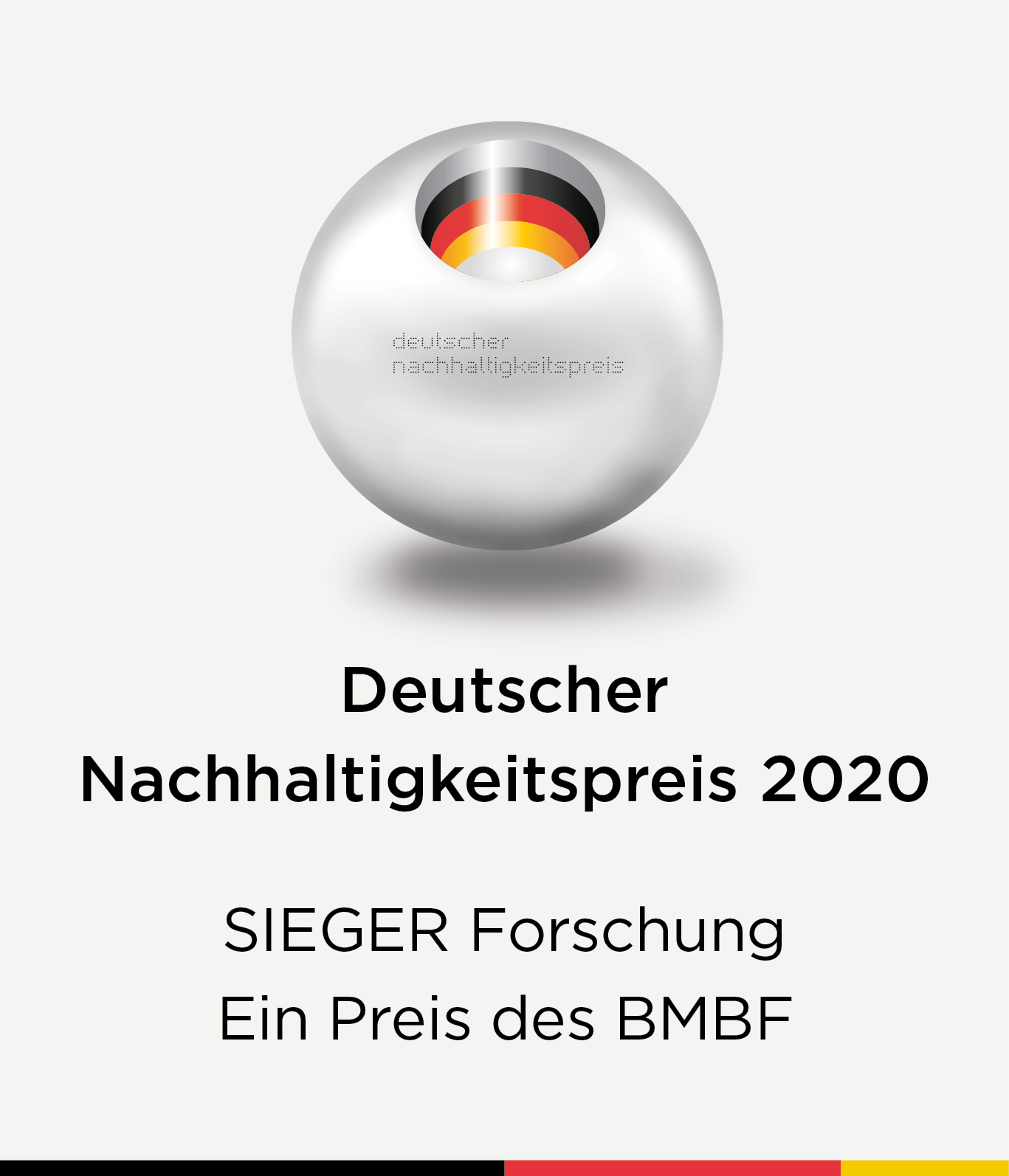Inclusive Transport – Ideas for a better Travel Experience
She’s got a ticket to ride – Maybe…
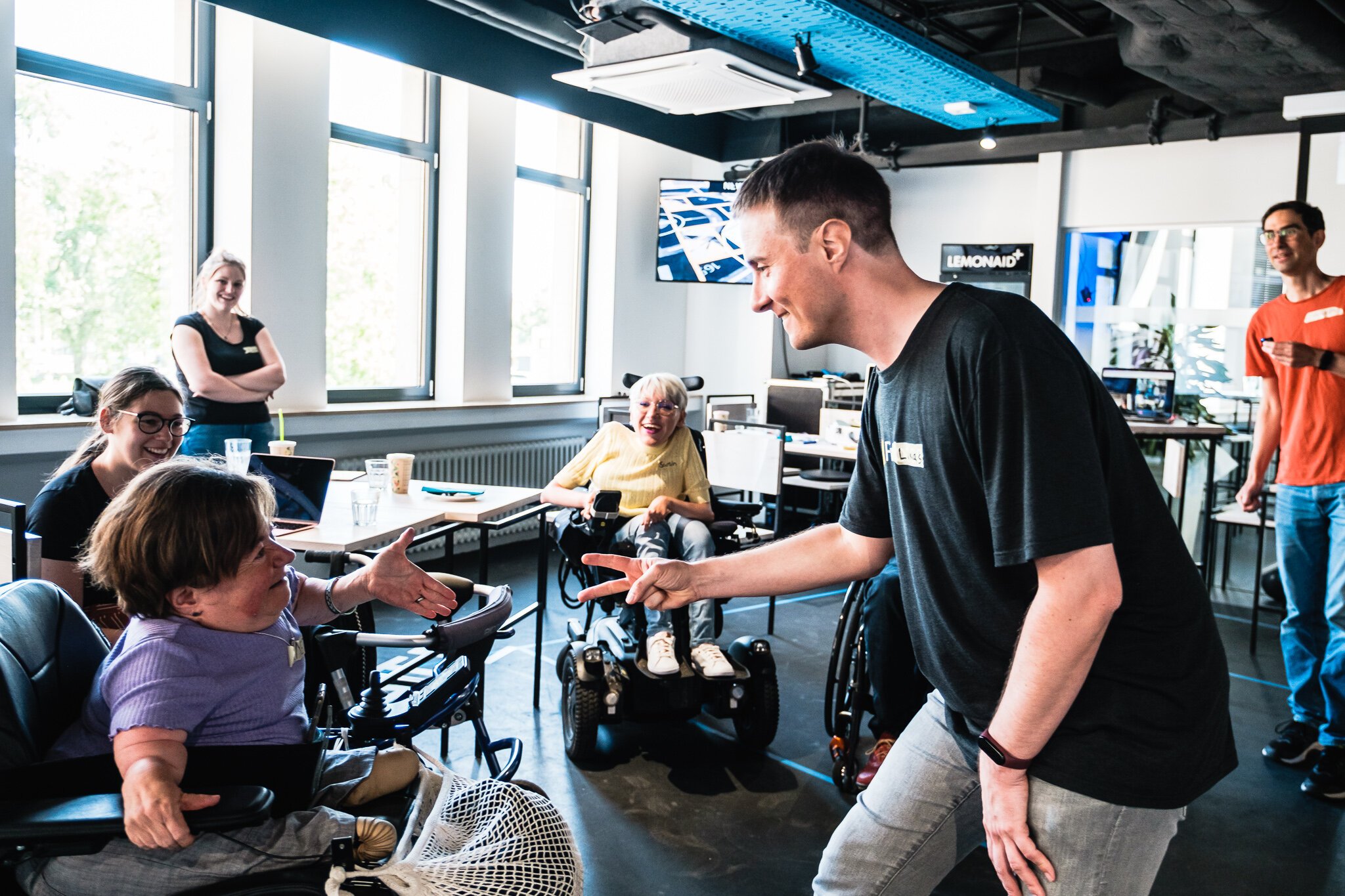
The problem: data inequality
Our Idea
- A personal booking profile that includes personal requirements could help to create a user-friendly booking procedure.
- For this, transparent data (OpenData) and the provision of open interface APIs, should be integrated into the regular booking process.
- Number and availability of wheelchair spaces must be matched in the system with the availability of the local mobility service.
I Need to know before I Go!
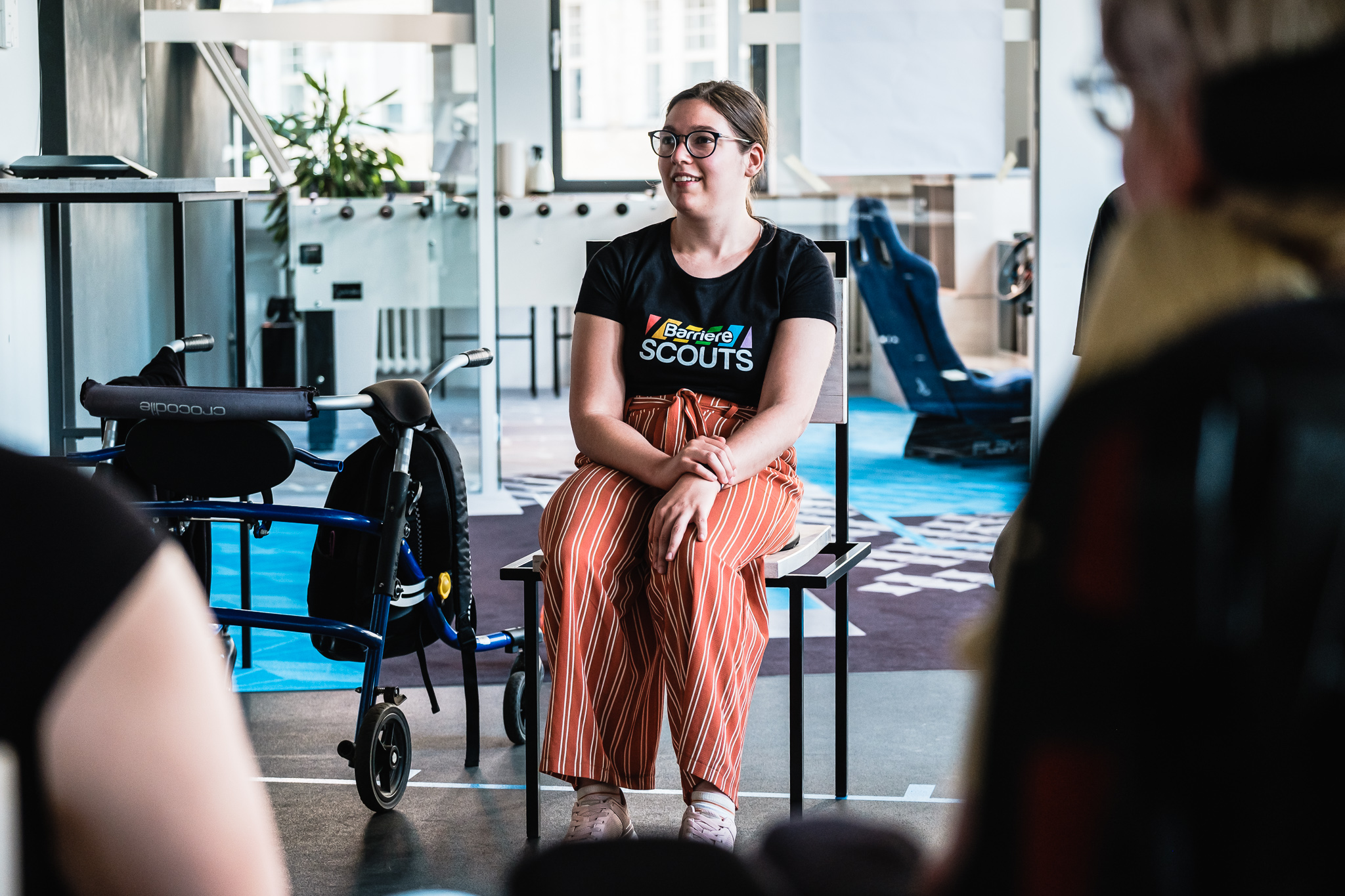
The problem: bad travel experience
- At the tram station – where and how can I get in?
- Are there places available for me?
- If change to a light rail: How does it work here? Is there a gap?
- If I need assistance from the staff – how can I get in contact?
Our claim
Ideathon in Leipzig during the ITF 2022
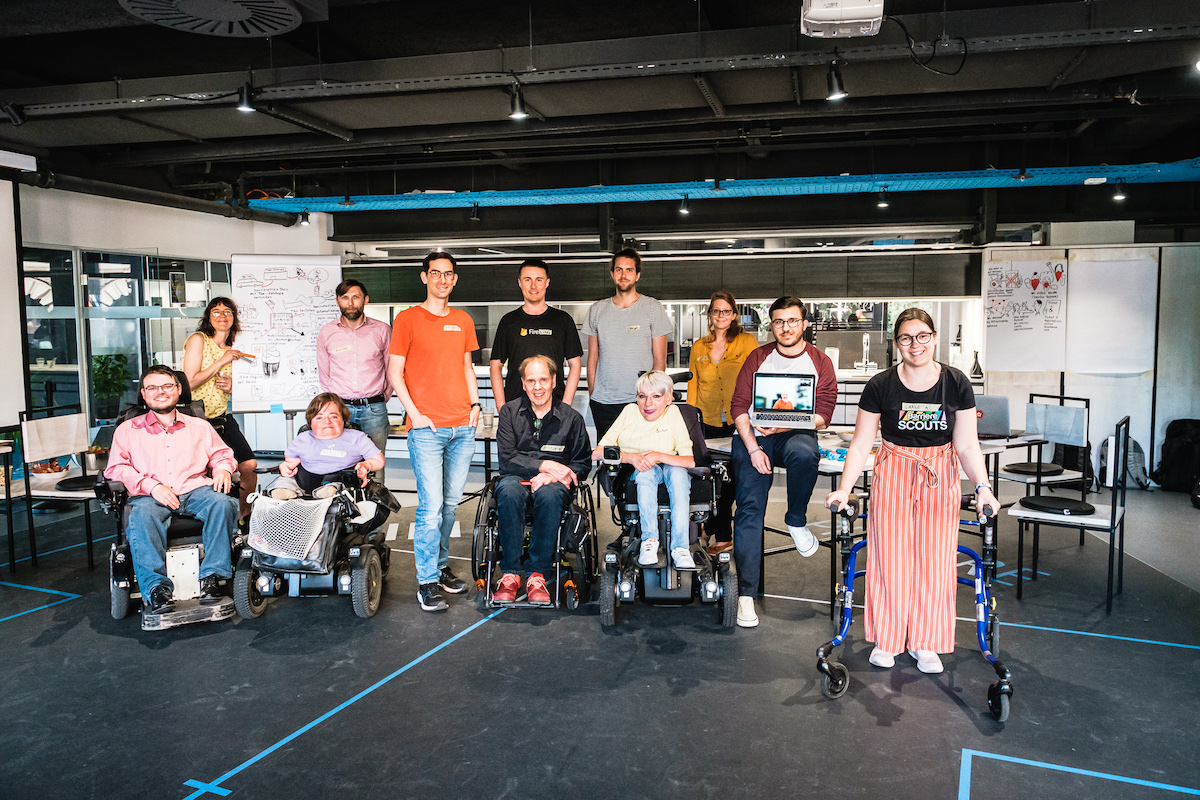
Please meet our experts in their own cause: Annett Heinich, Wolfgang Ziegler, Sarah Lenz, Carlotta Coda, and their allies Lukas Mrocek, Andi Weiland, Holger Dieterich and Helge Inselmann.
Know in advance, if the elevator IS working.
Make elevator information omnipresent
The Elevate Delta project creates the data infrastructure for this purpose by developing data standards and making elevator information from various data providers accessible and harmonized.
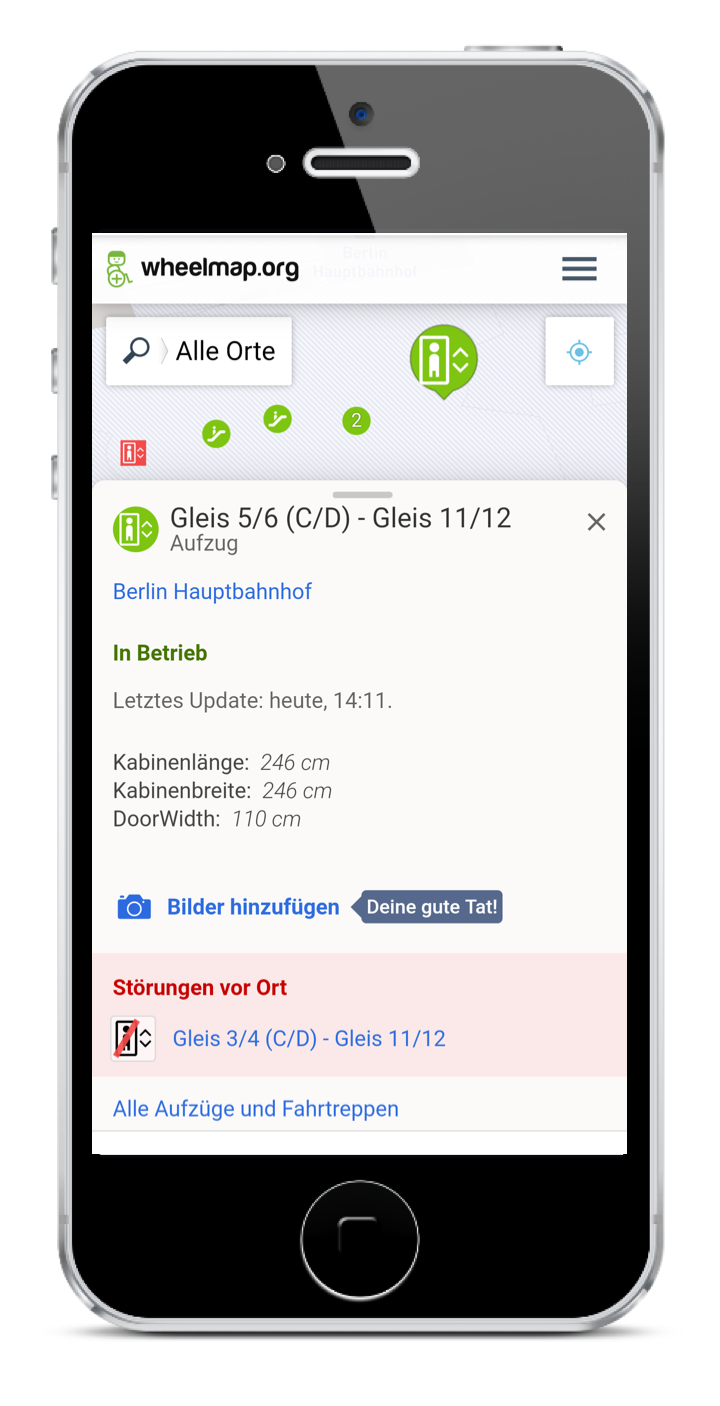
Enable participation
The disclosure of data on elevators adds enormous social value. Why?
Digitization becomes tangible. Smart Cities get a concrete use case.
Citizens can inform themselves in advance whether a particular elevator is working or not. Therefore, they experience less frustration and can plan accordingly.
Knowing if an elevator is currently working is not only useful for people that depend on a wheelchair. It is also useful for families with prams, for people with walkers or travelers with heavy luggage.
The Berlin NGO Sozialhelden e.V. laid the foundation for the Elevate Delta project back in 2012.
The project received the German mobility award and the German sustainability award for research.
The Project explained
How to provide data
(For transport services, manufacturers and other data owners)
(For tenants and owners of a building)
(For owners of elevators)
Contact
